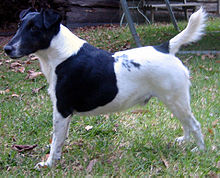|
Your order for N-acetyl-carnosine CAN-C eye drops has been received and will be sent to your mailing address ASAP. All shipments are sent using United States Postal Service First Class Mail. You will receive from me an e-mail with a USPS tracking number. To see the status of your shipment, log onto the USPS Tracking website (www.usps.com) and enter the tracking number that was assigned. I make every attempt to ship out orders the day they are received. Cost of shipping is free to US destinations and $15 to all international destinations. Please read the product information sheet you will receive carefully before applying Can-C drops to your dog’s eyes. If you have any questions of a medical nature, it is of course always a good idea to consult with your veterinarian. You will see a charge for your purchase today on your credit card under the name of my company: Zero Point Healers. Feel free to e-mail me or call our toll free phone number anytime if you have any questions. May your dog’s eyes shine brighter with each passing day. Robert robert@dogcataracts.info |
All posts by manabunnow4zph
Thanks for Your Order of Nac Can-C Plus Supplements
Thanks for Ordering The Marvelous Can-C Plus Supplement For Your Dog
|
Your order for Can-C Plus has been received and will be sent to your mailing address ASAP. All shipments are sent using United States Postal Service First Class Mail. Shipments typically arrive in 3 -4 working days if you live in the US. If you live outside the United States a shipment of your Can-C Plus Supplement may take one to three weeks to arrive. You will receive from me soon an e-mail with a USPS tracking number. To see the status of your shipment, log onto the USPS Tracking website (https://www.usps.com) and enter the tracking number that was assigned. I make every attempt to ship out orders the day they are received. Cost of shipping Can-C Plus is $3.00 to all US destinations and $18.95 to all destinations other than the United States. If you have any questions of a medical nature, it is of course always a good idea to consult with your vet.. Feel free to e-mail me or call our toll free phone number anytime if you have any questions. May your dog’s eyes shine brighter with each passing day. Robert Rodgers |


